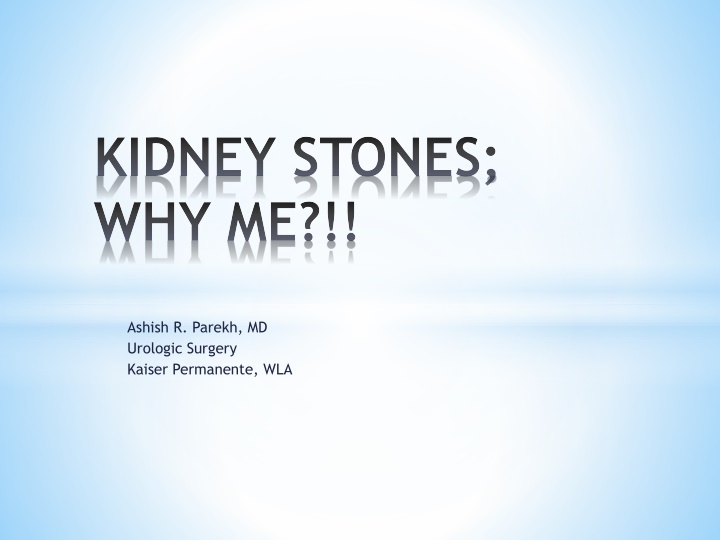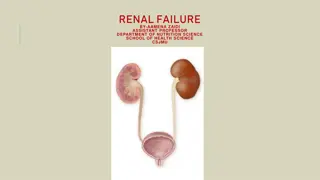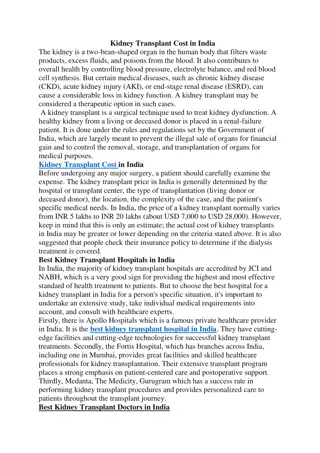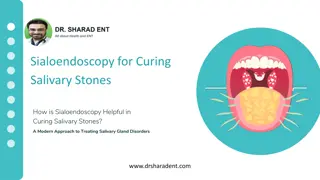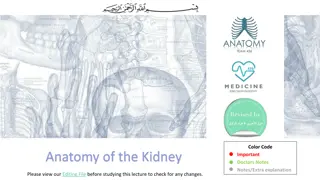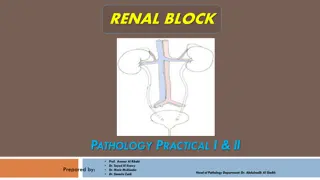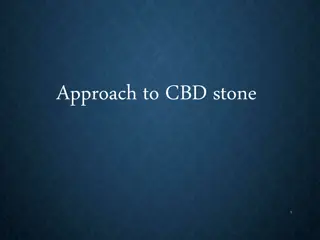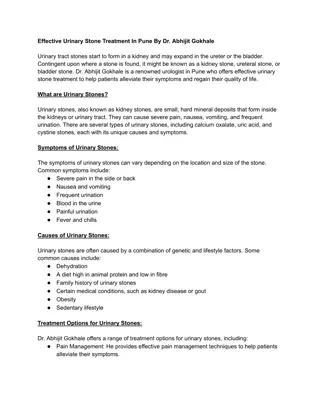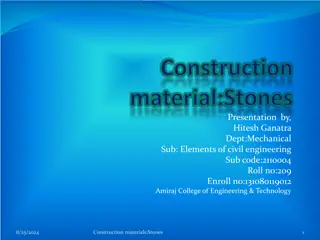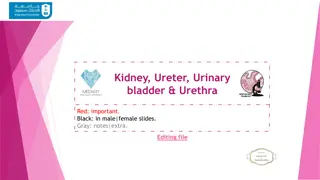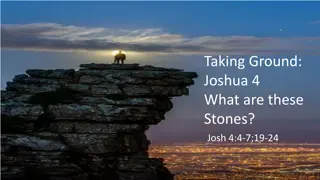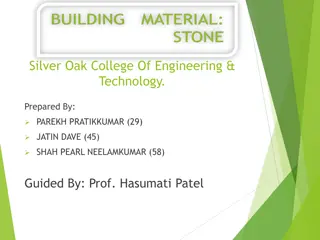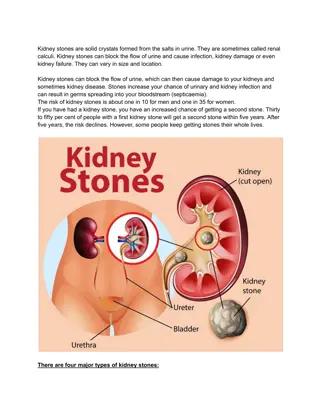Kidney Stones and Their Causes
Kidney stones can be excruciating. Learn about the risk factors, causes, symptoms, and treatment options associated with kidney stones. Discover how dehydration, diet, medications, and medical conditions play a role in stone formation. Explore the history of kidney stones and the importance of early detection and intervention.
Download Presentation

Please find below an Image/Link to download the presentation.
The content on the website is provided AS IS for your information and personal use only. It may not be sold, licensed, or shared on other websites without obtaining consent from the author.If you encounter any issues during the download, it is possible that the publisher has removed the file from their server.
You are allowed to download the files provided on this website for personal or commercial use, subject to the condition that they are used lawfully. All files are the property of their respective owners.
The content on the website is provided AS IS for your information and personal use only. It may not be sold, licensed, or shared on other websites without obtaining consent from the author.
E N D
Presentation Transcript
KIDNEY STONES; WHY ME?!! Ashish R. Parekh, MD Urologic Surgery Kaiser Permanente, WLA
*Men>Women (4:1 ratio) *Age 20-50 *Prior stone former 10x more likely to get another stone in his lifetime *Hereditary *Medullary sponge kidney, hyperoxaluria, cystinuria, renal tubular acidosis (RTA) Who gets them?
*Dehydration *Excessive salt *Excessive oxalates *Medications *Indinavir, Guifenesin, topirimate, diuretics *Medical problems *Hyperparathyroidism, gout, intestinal malabsorption, laxative abuse, obesity, diabetes, recurrent urinary tract infections *Fad diets *Contributing Factors
*Normal urine pH is 5.5-6.5 *The kidneys filter EXCESS minerals (potassium, calcium, phosphorus, etc) and metabolites (oxalates, uric acid) from the blood *When the pH is TOO HIGH (alkaline) or TOO LOW (acidic) AND there is TOO MUCH mineral/metabolite, STONES FORM IN THE KIDNEY, just like in a test tube in chemistry class; it s a concentration/crystallization problem! *Making a stone is a chemical reaction in your kidney
*Earliest stone: Egyptian mummy, 4500-5000 BC *Earliest stone surgery (literary documentation): Sushruta performed a perineal lithotomy, India, ~6th century BC *Documented in Sushruta Samhita *Modern day surgery: *1800s: perineal lithotomy (bladder stone removal) *1900s: percutaneous stone removal, ESWL, ureteroscopy *Stone History
*Pain in the upper back (SEVERE), either the LEFT or RIGHT side *Blood in urine *Fevers, nausea, vomiting DO NOT IGNORE THESE SYMPTOMS!! *Typical presentation
*Proper history FROM THE PATIENT *Hydration, control of pain, nausea, vomiting *Urine and blood tests *Imaging test (plain Xray, CT scan or ultrasound) *Antibiotics are OPTIONAL, but life-saving if there is sign of infection *Urology referral *Typical Medical Evaluation
*Pain medication *NSAIDs are best *Narcotics in case of severe pain *Medication to help pass the stone *Tamsulosin *FOLLOWUP IMAGING TO PROVE STONE HAS PASSED! *Instructions on how to PREVENT future stones *Hydration, less salt, less animal protein, add lemon juice to your water *Typical Medical Treatment
*What if it doesnt pass????
*EXTRACORPOREAL SHOCKWAVE LITHOTRIPSY *Least invasive *German-engineering at its finest! *URETEROSCOPY WITH LASER LITHOTRIPSY *Endoscopic (no cutting ) *PERCUTANEOUS NEPHROLITHOTOMY *Small hole in your back *LITHOTRIPSY: RUBBING (BREAKING) THE STONE
*MOST stones pass (especially if <7mm) without surgery *ONLY uric acid stones can be dissolved *Stones can cause kidney failure, if causing a blockage *Stones are possible even if you have NO PAIN *Kidney stones are COMPLETELY different than gallstones *Catch your stone, so we can analyze and give recommendations *TRUTHS ABOUT STONES
Stone types Calcium Oxalate Calcium Phosphate (60-70%) Struvite (10-15%) Uric Acid (10-15%)
